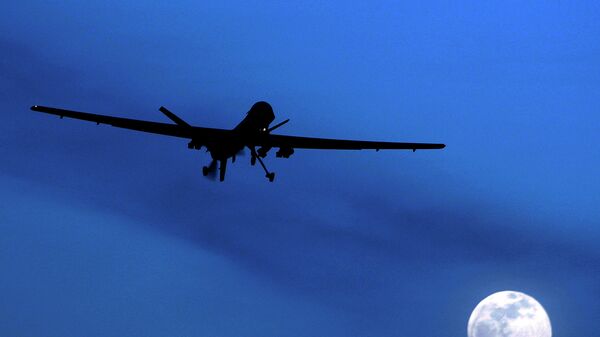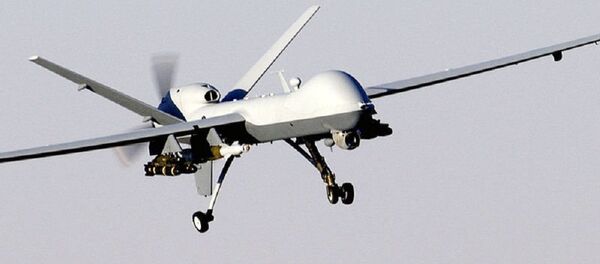The RQ-21A Blackjack, an American unmanned air vehicle, got its operational capability for the Marine Corps in January, thus meeting a United States Navy requirement for a small tactical unmanned air system (STUAS). The drone, made by Boeing subsidiary Insitu, weighs about 80 pounds unloaded, can fly for 16 hours at a stretch, and "uniquely, the Blackjack uses a tail hook recovery system that makes it capable of operating from a ship," according to Military.com.
Lt. Gen. Robert Walsh, commander of Marine Corps Combat Development Command, told Military.com in a September interview, "We can benefit from what [U.S. Special Operations Command] does, from what we're doing, bring that back and go, 'OK, this is what we need to do with equipping the RQ-21,' or concepts of employment that they will use in real-world operations, and not just training. We'll be able to get them out there with their [Marine Special Operations Teams] in Iraq, operating with Iraqis as part of their special ops forces."
The Blackjack system has been tested on five aerial vehicles. It was launched from the amphibious assault ship USS Wasp for airstrikes on Daesh (ISIS) targets in Libya. Fleet Marines and MARSOC employ the drone, testing payloads, including some developed for United States Special Operations Command (SOCOM).
As Walsh stated, using MARSOC as a test force allows the corps to leverage the resources and insights of SOCOM for the benefit of Marines.
"We're working with them, partnering with MARSOC. Give them the platform, RQ-21, now they can put their own stuff on there. We can learn from that, we can buy off their contract, we can learn from it, develop our own. There's a lot of opportunities here from working with SOCOM in that area," he said, according to Military.com.



